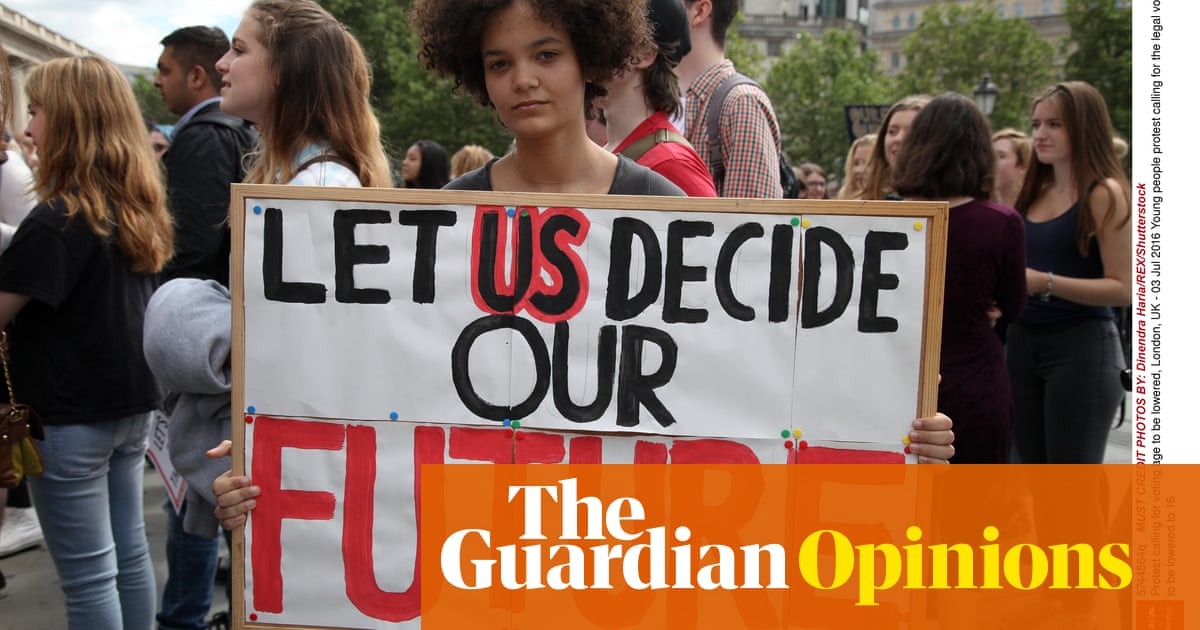I remember being 16 in the 1960s. The prime minister seemed geriatric and I was sure he should be in care, while a group of us went to meet our young MP, a certain Margaret Thatcher. She was young, but she didn’t seem as if she was with the times. We could not dream of voting for someone like her. Matter closed.
Sixteen-year-olds are great fun but they are not grown up. They cannot marry in England and Wales, drive, smoke, get a tattoo or buy alcohol on their own. They are legally classed as children and are supposed to be in formal education or training to 18. Sixteen-year-olds have not taken to the streets demanding the right to the franchise, like the Chartists or suffragettes did.
So why has Keir Starmer suddenly reiterated that he intends to enfranchise them to vote in UK-wide elections? The only plausible answer is that he hopes they will vote for him. In a desperate attempt to justify this manoeuvre, he says that, if 16-year-old soldiers “are old enough to take a bullet for our country”, they should get the vote. (Likewise if they are “old enough to work” and “pay taxes”.)
In fact, 16-year-olds are not old enough to “take a bullet”, since frontline army service is banned for under-18s. Meanwhile, precious few 16-year-olds work, since Starmer’s own party, when last in power, made it supposedly compulsory for them to remain in education or training to 18. As for taxes, younger children already pay VAT when they spend their pocket money. The whole argument is slapdash.
Even the expected electoral gain to Labour is dubious. Well under half of 18-24s turned out at the last general election. There is some evidence from Scotland, which lowered the voting age to 16 in 2014 for the independence referendum and in 2016 for Scottish parliamentary elections, that the new group would be active, though novelty may recently have been a factor in turnout. In Wales, which lowered the voting age to 16 in 2021 for Senedd and local government elections, early evidence suggests that the new group plans to vote at a similarly low rate to other age groups under 55. Either way, Starmer would be lucky to see more than half of his 1.5 million new voters actually turning out, with perhaps about a third of those voting for him. Even then, the general assumption that the young are leftwing has taken a bruising recently from rightwing influencers.
Where Starmer must be right is in wanting to bring young people into what he pompously calls his “social contract” with gen Z. Here, his absolute priority should not be the ballot box, but how he proposes to prepare the new cohort for their responsibilities. With social media so clearly dominant over the views and behaviour of those whose support he seeks, its proper regulation should be a priority for any such reform.
The present government shows no interest in such regulation. Indeed, if anything, quite the reverse. Rumour has it that Starmer, in his attempt to reduce tariffs, is on the brink of pledging no further curbs on the tech giants, in view of their closeness to Donald Trump. This would follow the cabinet’s apparent capitulation to those same giants in the matter of copyright and artificial intelligence. All this suggests a complete lack of concern for what must currently be the greatest threat to the mental health of gen Z. All Starmer has done is boast that he watched Adolescence. So what now: voting at 13?
The one thing that might excuse the government’s cynicism is a programme to prepare teenagers for their new responsibility. The tyranny of academic GCSEs and exam culture should be suspended, if not for ever, then at least for one day a week, to be replaced by compulsory civic awareness. This should embrace an introduction to peace and war, national politics, local government, the law, practical economics and the handling of money.
The subservience of British secondary education to academia was dented only as recently as 2000. The then Labour government nodded at the revolutionary idea that schools might help pupils to get on in life, rather than merely get a place at university. It introduced “non-compulsory” personal, social and health education, to which economics was later added. To say these topics do not rank highly in the syllabus would be an understatement, nor do they embrace politics.
I know teachers who genuinely think it is not their job to “teach” a world outside education. They see no need to educate young people in how to relate to one another, work in groups or keep their minds and bodies in good shape. They see no reason to teach self-presentation or expression, the new skills of oracy so crucial to getting on in a creative career. Teachers seem to think all this is for parents, not schools, even when they know it is not true. The school curriculum is in the dark ages.
The truth of the matter is that teenagers are acquiring these skills and attitudes from social media. It is online that they are gaining a whole new context for their personal and social lives. They are doing so from the worst possible sources: biased, uncensored, unmediated and unregulated. It must be the worst preparation for that most sacred of democratic rituals – the vote. This is the grim reality of Starmer’s new social contract.



